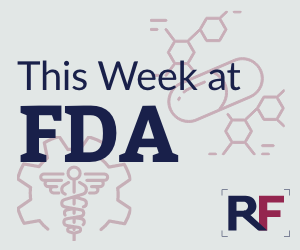This Week at FDA: VRBPAC to weigh COVID vaccine updates; a new gene therapy and more
 Biologics/ biosimilars/ vaccinesMedical DevicesNorth AmericaPharmaceuticalsProduct LifecycleRegulatory Intelligence/Policy
Biologics/ biosimilars/ vaccinesMedical DevicesNorth AmericaPharmaceuticalsProduct LifecycleRegulatory Intelligence/Policy Biologics/ biosimilars/ vaccinesMedical DevicesNorth AmericaPharmaceuticalsProduct LifecycleRegulatory Intelligence/Policy
Biologics/ biosimilars/ vaccinesMedical DevicesNorth AmericaPharmaceuticalsProduct LifecycleRegulatory Intelligence/Policy